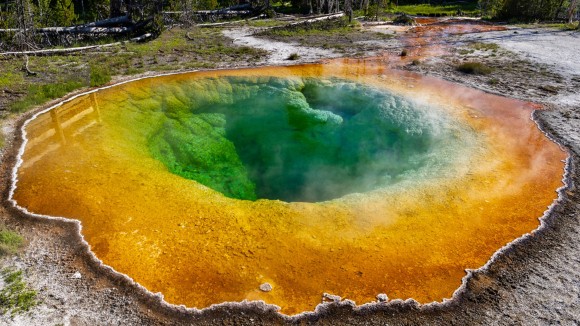 Thorsten Allers is a Professor of Archaeal Genetics at the University of Nottingham. His research is focussed on DNA replication, recombination, and repair. He has used microbial genetics to unravel the mechanisms that underpin genome stability in Bacteria, Eukarya, and Archaea. Prof Allers has been an Editorial Board Member for Scientific Reports since 2016.
Thorsten Allers is a Professor of Archaeal Genetics at the University of Nottingham. His research is focussed on DNA replication, recombination, and repair. He has used microbial genetics to unravel the mechanisms that underpin genome stability in Bacteria, Eukarya, and Archaea. Prof Allers has been an Editorial Board Member for Scientific Reports since 2016.
 Jaime Iranzo is a Junior Group Leader and "Ramón y Cajal" Fellow at the Centre for Plant Biotechnology and Genomics (Universidad Politécnica de Madrid). He and his team focus on the interplay of horizontal gene transfer, virus-host coevolution, and population dynamics to understand the major evolutionary and ecological processes that occur in complex microbial populations. Dr Iranzo has been an Editorial Board Member for Scientific Reports since 2016.
Jaime Iranzo is a Junior Group Leader and "Ramón y Cajal" Fellow at the Centre for Plant Biotechnology and Genomics (Universidad Politécnica de Madrid). He and his team focus on the interplay of horizontal gene transfer, virus-host coevolution, and population dynamics to understand the major evolutionary and ecological processes that occur in complex microbial populations. Dr Iranzo has been an Editorial Board Member for Scientific Reports since 2016.
 Anna Valenti is a permanent Researcher at Institute of Bioscience and BioResources of National Research Council of Italy. Her research focuses on DNA metabolism and biochemical analysis of proteins and enzymes related to DNA structure regulation and the safeguarding of genomic stability in thermophilic and mesophilic organisms. Dr Valenti has been an Editorial Board member for Scientific Reports since 2019.
Anna Valenti is a permanent Researcher at Institute of Bioscience and BioResources of National Research Council of Italy. Her research focuses on DNA metabolism and biochemical analysis of proteins and enzymes related to DNA structure regulation and the safeguarding of genomic stability in thermophilic and mesophilic organisms. Dr Valenti has been an Editorial Board member for Scientific Reports since 2019.

